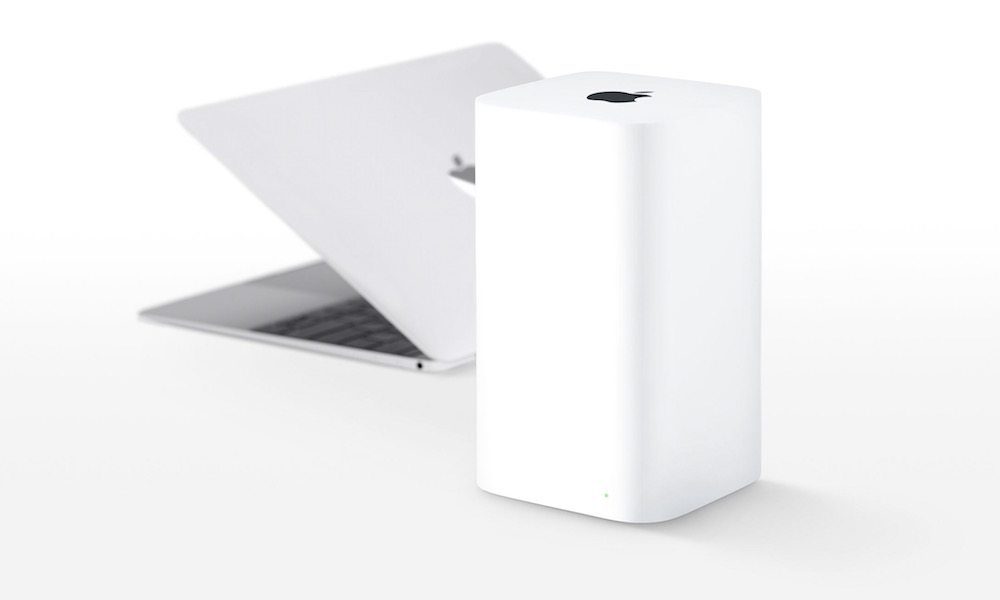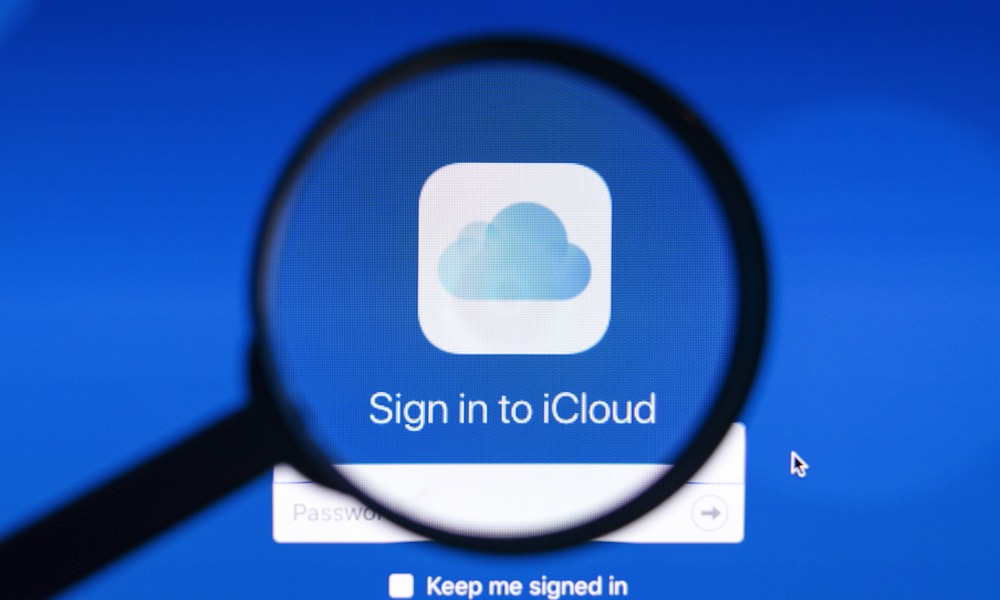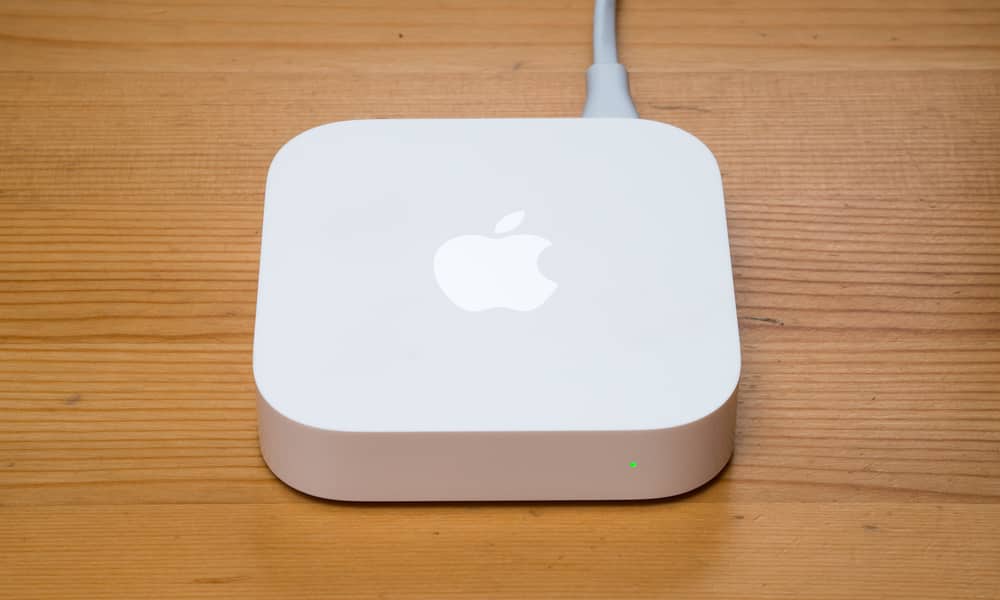Could a New iCloud Time Capsule Herald the Return of the Airport Router?
 Credit: Apple
Credit: Apple
Toggle Dark Mode
Apple’s discontinued products don’t always stay discontinued. They have a way of coming back around sometimes, and a new rumor is getting some hopes up that this could be the case with the company’s AirPort lineup of Wi-Fi routers and extenders.
The entire AirPort lineup was killed off by Apple in 2018 when the company decided it was a distraction from the rest of its products, all of which were arguably much more important.
However, that 2018 announcement was really just the final nail in the coffin for a product line that had been languishing for years. Many already felt that the AirPort family had died on the table long before that, and rumors that Apple was winding things down had already circulated for more than two years.
After all, the AirPort Extreme hadn’t seen an update since 2013, when it received a minor refresh to add support for the then relatively new 802.11ac Wi-Fi 5 standard. Apple’s hard-drive-equipped version, the AirPort Time Capsule, got a similar update to keep it in step while also dropping the price of the largest 3TB model by $100.
While the advent of Wi-Fi 6 and Wi-Fi 6E routers means most folks have long since moved on from the AirPort Extreme, Apple’s router had a certain elegant simplicity that earned it a loyal fan base. It was the epitome of “just works” technology — something extremely hard to find in the world of Wi-Fi routers.
Now, leaker Majin Bu has just shared news from sources that have revealed that Apple may have a successor in the works.
The Tweet makes an almost parenthetical mention of “new AirPorts in November,” focusing mostly on a new macOS 13 feature that would allow Time Machine backups to be made to iCloud. The report suggests that the Mac backup system will be “completely redone,” although it will presumably still support local backups.
As AppleInsider, which first spotted the tweet, notes, this leaker has shared reliable information on things like future iPhone cases in the days leading up to their release but doesn’t have a particularly great track record when it comes to hardware products.
Of course, there are two aspects to this information, and the part about iCloud Time Machine may be more accurate. Apple is expected to unveil macOS 13 at WWDC in less than two weeks, so we’ve reached the point where a significant number of people inside Apple’s walls likely know what’s coming, and some leaks are almost inevitable.
iCloud Time Machine
iCloud Time Machine would be an exciting idea, although we’re not sure the world is quite ready for that yet — at least not as a solution for backing up an entire Mac to iCloud.
At 2TB, Apple’s largest iCloud storage plans should be enough to accommodate a single Time Machine backup for most Mac users. Keeping a backup history would complicate things, as storage requirements would increase.
As one option, Apple could take the approach it uses for iPhone and iPad backups. iOS and iPadOS devices that back up to iCloud store only the last three versions. Apple does this at no additional cost; only the most recent backup counts against your iCloud storage allotment.
The suggestion that Apple has “completely redone” Time Machine also hints at other similar changes. While Time Machine has traditionally backed up your entire Mac, iPhone and iPad backups exclude data that can be recovered in other ways, such as apps that can be re-downloaded from the App Store and photos already stored in iCloud Photo Library. iCloud Time Machine could presumably do the same thing for your Mac.
Apple also offers free storage space to its paying customers in other ways. For example, HomeKit users on any paid iCloud+ plan can store up to 10 days of HomeKit Secure Video in iCloud. This doesn’t count against your iCloud storage; instead, Apple limits the number of cameras on the lower tiers: a single camera on the 50GB plan, up to five cameras on the 200GB plan, and an unlimited number of cameras on the 2TB plan.
While 2TB is the largest standalone iCloud plan that Apple offers, Apple One subscribers can actually get 4TB by adding the 2TB standalone plan on top of the Apple One Premier bundle.
However, even for customers that could fit all their backups into 4TB of iCloud storage, broadband speeds would be another obstacle. While some folks are lucky enough to have symmetrical 3Gbps fiber-optic plans, most home internet packages are assymetrical, which means that upload speeds are typically much slower than download speeds. This is particularly true among cable providers; even Comcast’s Gigabit Xfinity plans only offer a paltry 35Mbps upload speed (Comcast does its best to hide this fact).
An upload speed of 35Mbps works out to around 4 megabytes per second (4MB/s). Under perfectly ideal conditions — which is almost never the case — it would take eighteen hours just to fully backup an entry-level MacBook Air.
Nevertheless, if Apple does go down this road, it’s a safe bet it will only do so if it has a few tricks up its sleeve to make the process as efficient and user-friendly as possible.
AirPort Redux
Part of this strategy could indeed be a return of the physical AirPort hardware. Imagine a network device similar to the 2013 AirPort Time Capsule that could store backups locally, offloading them to iCloud at its own pace.
Since, by its very nature, a router needs to be on and connected all the time anyway, this would take the load off your Mac, especially for MacBook users that want to take their laptops with them.
This could be where Apple’s mysterious network adapter that we heard about earlier this week comes in, although it still doesn’t sound like an especially good fit.
While that rumored device has raised hopes of the AirPort’s return, the specs are odd for any traditional router or Time Capsule device. For one thing, the 802.11n Wi-Fi 4 speeds would make wireless Time Machine backups much slower than they need to be, and it’s hard to imagine why such a device would need an internal battery, much less Bluetooth and NFC.
Of course, that doesn’t mean that Apple may not have something else in the works that hasn’t gotten anywhere near the FCC yet. If the rumor is true and this is set for a November release, there’s still plenty of time for it to pass the FCC’s muster.
[The information provided in this article has NOT been confirmed by Apple and may be speculation. Provided details may not be factual. Take all rumors, tech or otherwise, with a grain of salt.]









